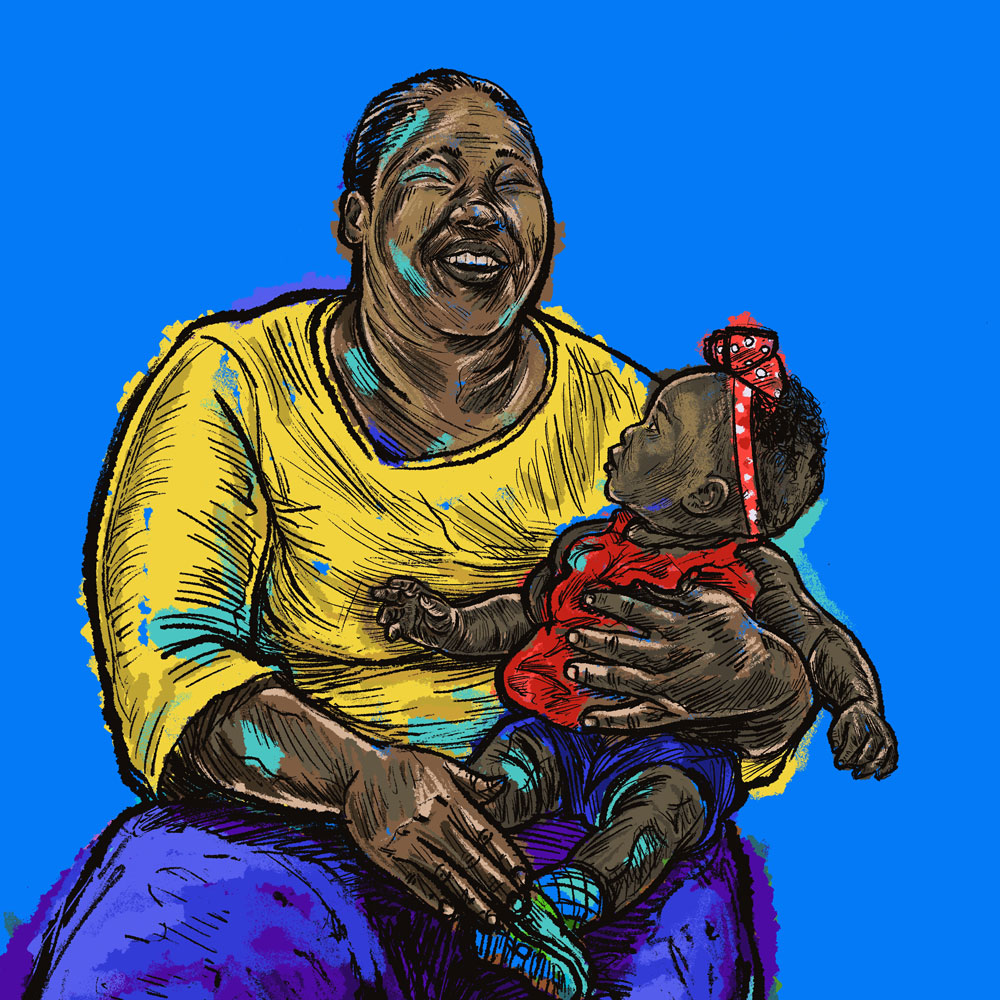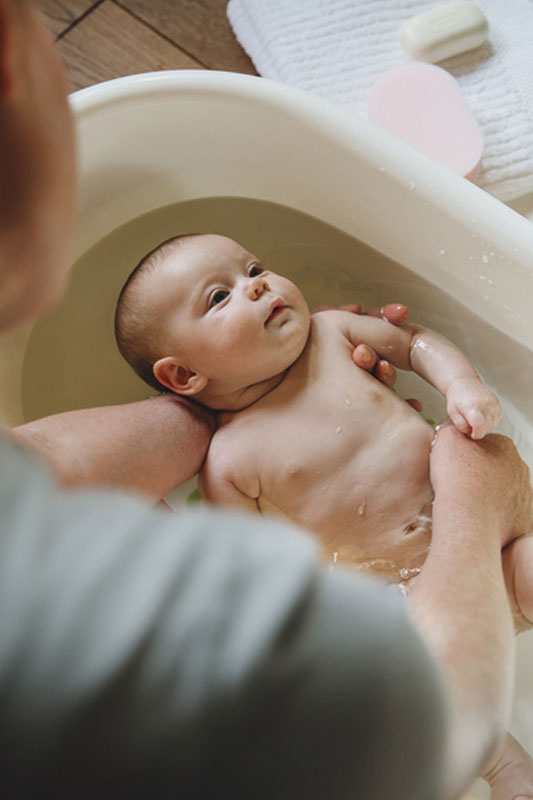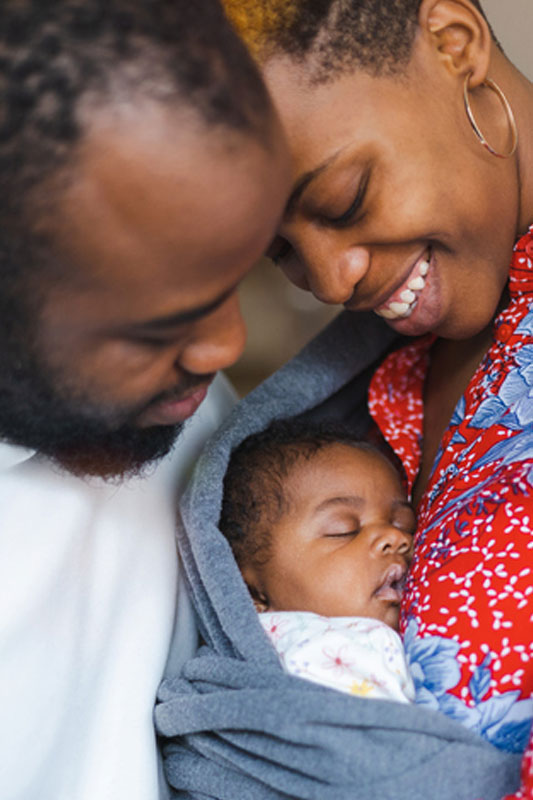You’ve Got This
Begin your free and 100% confidential, individualized support for you, your baby and your family.



What Moms Are Saying
Don’t wear your strength as a badge of honor. It’s okay to ask for help.
Our Promise To You
With one-on-one support, we promise to help you set a strong foundation for a healthier life for you and your baby. We got your back. For real.
Personalized
Respectful
Confidential
Who We Are
A family support system
To help navigate pregnancy and parenthood. Let’s be real, it takes a village to raise a child and we want to part of your support system. You got this, and we got you.
Coordinated, continuous support
That’s designed to meet your needs and those of your family. Trusted, experienced experts are just a phone call or click away. And if we don’t have a program that works for you, we’ll work to find one.
A resource for health & well being
That’s simple to access and personalized for you. We know it’s not always easy being an expectant or new parent, and having a support system can make a world of difference. Let us help you give your child the healthiest start possible.
Care that comes to you
At no cost and in the privacy of your own home. Our home visiting programs pair you with someone who can provide help finding health care; education about childbirth, breastfeeding and parenting; support to quit smoking; referrals to other community resources; or simply someone to listen.
How It Works
Connect
Chat
Learn
Grow
Programs & Services Offered

Healthy Start
Want someone to talk to face-to-face without leaving your home? A caring case manager visits you, on your terms, offering tips on stress management, parenting skills, breastfeeding, and much more. This free home-visiting program for families with children under the age of three is proven to boost the health and well-being of those who participate.

The Magnolia Project
If you live in 32208, 32209, 32211 or 32277, this special Healthy Start program may be what you’re looking for. The Magnolia Project works with women and their families in Duval County providing medical care through Agape, health education, counseling services and other free resources.

The Rose Project
For those pregnant or new mamas already enrolled in a home visiting program who are in recovery from substance abuse. ROSE, which stands for Recovery Obtained Through Strength and Empowerment, complements services by matching you with someone who’s been in your shoes. Our peer specialists are also in recovery and work with you on yours to ensure you’re equipped with the skills needed for self care and the care of your child(ren).

National Health Corps
An AmeriCorps program that provides service opportunities to help meet unmet health care and health education needs in the region. If you’re an employer looking for talent, you may want to consider placing a NHC member on your team. We place 26 members each year at local nonprofits and government agencies thanks to funding from the Health Federation of Philadelphia.

Fatherhood Pride
Being a father is one thing, but being a dad is everything. There’s no time like now to be the role model your child needs you to be. Join us and meet dads just like you to learn more about responsibility, managing money, job readiness, parenting skills, conflict resolution and so much more.
How Do Our Programs Help?
By providing free and confidential services we help meet your needs before, during and after pregnancy to support you, your baby and your family.
Saving Mothers
& Babies Lives
Strengthening
Families
Supporting
Dads
Building
Communities
Get access to resources for you, your little ones, and your family.
Making impacts, changing lives
- Reducing infant deaths by 35% in 30 years
- Supporting 200k+ families since 1991
- Reducing teen pregnancy rates
- Increasing prenatal visits
- Addressing factors causing toxic stress
Got Questions?
We Have Answers.
Mamas & Their Family Members
What’s Connect?
Connect is a free service provided by the Northeast Florida Healthy Start Coalition that pairs pregnant women, new moms and their families with an expert who matches you with programs and services that best meet your needs.
Why should I get involved with this organization?
After 30-plus years of providing these resources, we know a thing or two about making positive impacts in women’s and their families’ lives. Those moms and dads who work with us gain access to resources you may not be aware of, all with the intent of helping you achieve a healthy pregnancy and deliver a healthy baby.
Who is eligible to participate?
Pregnant women, new parents, caregivers and families with young children who reside in Baker, Clay, Duval, Nassau and St. Johns counties.
Why is the Coalition doing this work?
Because too many babies and their mamas are still dying from mostly preventable causes.
What types of programs and services are available through the Coalition?
- Pregnancy education & support Childbirth information
- Newborn care
- Breastfeeding education & support
- Parenting skills & education
- Counseling services & mental health
- Infant safety & safe sleep
- Nutrition
- Home visiting programs
- Smoking cessation
- Substance abuse help
Are these programs and services free?
There’s no cost for our programs and services. We are funded by a variety of federal, state and local sources making it possible to work with you free of charge.
What happens after I complete the Connect form?
After you submit the Connect form, a Coalition staff member will follow up with you by phone within 24-48 hours. Our experts will evaluate your information and may ask some additional questions, if more details are needed. They will determine your eligibility and direct you to the best programs and services to fit your and your family’s needs.
Why does the Coalition need this information about me?
We ask for some basic information so we can determine how best to support you and your family. This evaluation, or what we call our intake process, is based on your health and/or the health of your child, your current living situation, and your daily activities.
Is the information I provide on the Connect form confidential?
Yes, your information is kept confidential by the Coalition.
Employers
What is a family-friendly workplace?
One whose policies and procedures make it possible for employees to more easily balance family, work and other obligations.
Why is having a family-friendly workplace important?
Research shows that organizations that adopt certain types of policies, such as flexible schedules and/or parental leave, report higher levels of employee engagement, productivity and retention. And, since nearly 92 percent of families with children have at least one working parent, having a known family-friendly employer brand helps a company appeal to a large demographic.
How can my company be more family-friendly?
For many companies, working 9 a.m. to 5 p.m. is a thing of the past. For businesses and organizations to engage and retain their employees, they must adapt their policies and procedures to better support employees’ busy, modern lives. There are many ways in which to consider becoming a more family-friendly workplace including offering:
- Flexible working hours
- Job sharing
- Employee and family health benefits (flexible spending plans, HSAs, dependent care)
- Telecommuting and/or hybrid work schedules
- The inclusion of employee feedback into continuous improvement efforts
- Paid parental leave
- Breastfeeding support
- On-site childcare or caregiving referrals and support
- Tuition reimbursement
- An employee assistance program
- On-site education sessions about parenting, work-life balance and stress management
Given NEFHSC’s focus, can you provide some examples of how a company can better support breastfeeding mothers?
Organizations looking to improve their workplaces in this regard should consider the following:
- Does the company have a breastfeeding support policy in place (i.e., is it part of employee handbook, benefits guide, etc?)
- Do nursing mothers have access to a private lactation room with a chair, small table, electrical outlet, and refrigerator/ cooler?
- Are flexible breaks to express milk or nurse a child available?
- Does the company offer referrals for lactation support?
How does an organization start the process of becoming more family-friendly?
Developing and implementing family-friendly policies involves more than just doing something one way instead of how it’s always been done. Careful consideration must be given to determine which issue(s) the company addresses first, recognizing change takes time. If the company conducts employee satisfaction or engagement surveys, the issue(s) that should be addressed is probably evident in the survey results.
NEFHSC encourages employers to consider those issues that, if modified, would have the greatest benefit for the majority of their workforce. Other considerations include:
- Best practice approaches for like-employers
- Needs/issues particular to the workforce
- Federal, state and local laws and requirements
- Potential costs and funding sources to implement different approaches
Health Care Providers
How can we contribute to better maternal and infant health outcomes?
The CDC recommends the following practices:
- Ask questions to better understand your patient and things that may be affecting their lives.
- Help your patients, and those accompanying them, understand the urgent maternal warning signs and when to seek medical attention right away.
- Help your patients manage chronic conditions or conditions that may arise during pregnancy like hypertension, diabetes or depression.
- Recognize unconscious bias in yourself and/or others in your practice.
- Address any concerns your patients may have.
- Provide all patients with respectful care.
What resources are available to ensure our facility is adhering to best practices for maternal and infant health and well being?
The World Health Organization (WHO) developed the Safe Childbirth Checklist, a simple quality improvement tool to ensure adherence to proven maternal and newborn care practices. It targets the major global causes of maternal deaths, stillbirths and neonatal deaths. The recommended approach for using the checklist is for health care workers to first conduct their normal practice and then use the checklist to verify that each step has been correctly performed.



